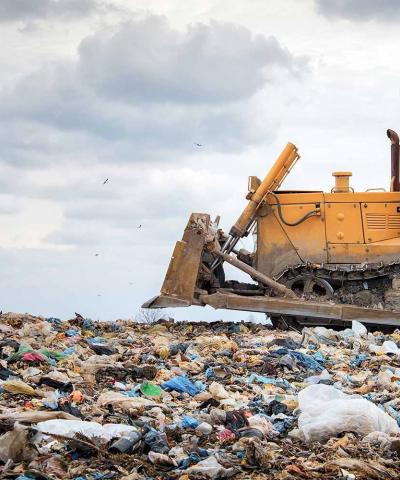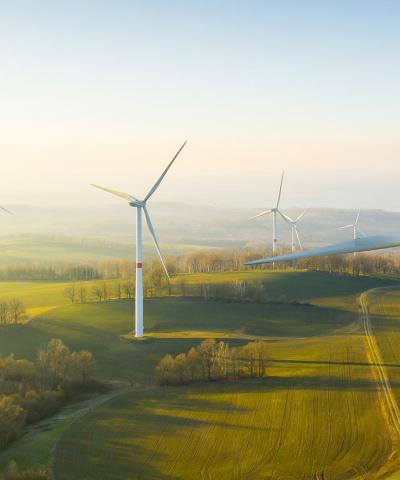At the heart of sustainable development and the circular economy, environmental engineers work on processes to improve air, water, and soil quality, to recycle and recover waste more effectively, and to develop renewable energies and their use.
The training program
Careers and opportunities
Eco-industrial companies
These may be large companies, operating nationally or internationally, particularly in the fields of water treatment or waste management. This sector also includes a large number of smaller companies that are more specialized in one activity in the fields of water and waste or in the fields of soil decontamination, air treatment, etc.
Environmental engineers have a variety of responsibilities:
- Site manager: a sorting center, etc.
- Process engineer to optimize treatment processes
- Design engineer to design equipment
- Project manager
Industrial or service companies
All sectors of activity today must be concerned about environmental issues: automotive, transportation, construction, public works, chemicals, agri-food, etc.
All need to comply with increasingly stringent environmental regulations. All must also meet their customers' expectations and are committed to more or less voluntary environmental initiatives.
Environmental engineers are responsible for a company's environmental policy, integrating related initiatives such as QSE (quality, safety, environment) and CSR (corporate social responsibility) policies.
They work upstream and downstream to reduce environmental impacts at the regional level, at production sites, and in products and services.
Design offices, consulting firms, verification agencies
As a design engineer or environmental consultant, graduates carry out and/or supervise projects. They participate in environmental impact assessments and regulatory studies, provide advice on eco-design, and help companies comply with environmental standards.
Public or private institutions
Environmental engineers work as research officers or project managers:
In government agencies and departments, they are responsible for studies or projects arising from national environmental policies.
In local authorities, they are responsible for the quality of life of residents, ensuring water quality and waste management, as well as managing green spaces, air quality, the authority's energy policy, etc.
Within chambers of commerce or professional federations, they support companies in their environmental initiatives.
Continuing your studies at UniLaSalle
Graduates can continue their studies with a Specialized Master's degree in Circular Economy: Industrial Ecology and Eco-Design Tools at UniLaSalle. This 12- to 18-month, professionally oriented program aims to train experts capable of responding to the environmental challenges faced by businesses and industries thanks to their expertise in the field of eco-innovation.
Main areas of activity
- environmental impact assessment
- management and the environment, HQE, HSE
- water management and treatment
- waste management and treatment
- energy production and distribution, renewable energies, energy savings
- atmospheric effluent management and treatment
- eco-design of products, life cycle analysis
- clean technologies or eco-processes
- ecosystems and environments
- construction
- sustainable development
Main duties
- manager, department head, senior executive
- environmental engineer
- environmental research officer
- eco-process development officer
- environmental consultant
- environmental policy management and implementation officer
- QSE manager
- environmental project manager
- environmental director
- pollution prevention or treatment solutions management and implementation officer


